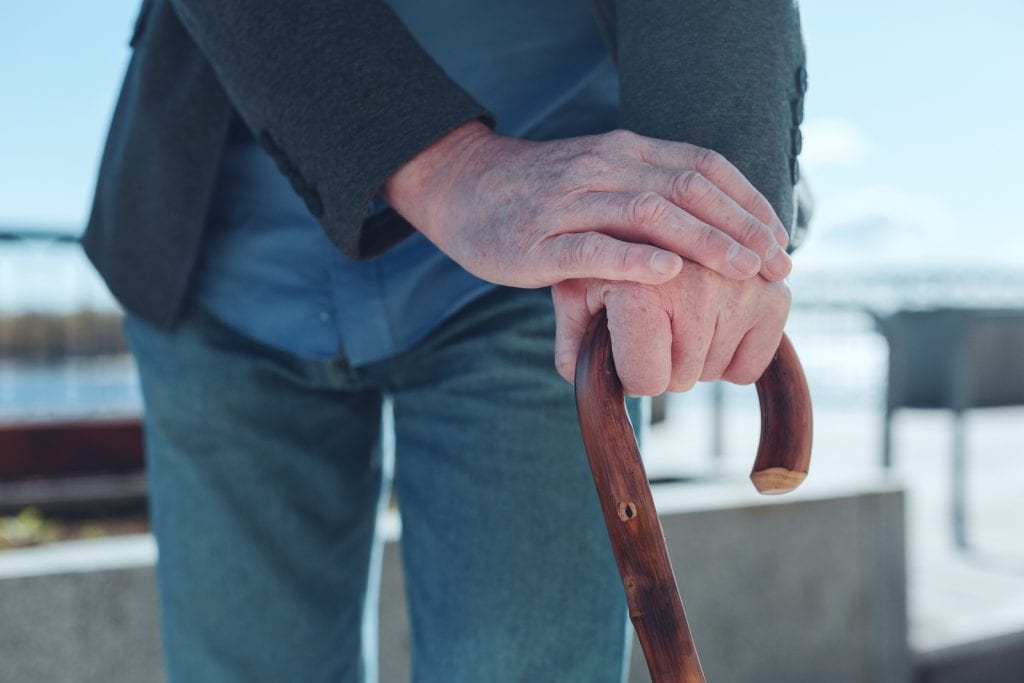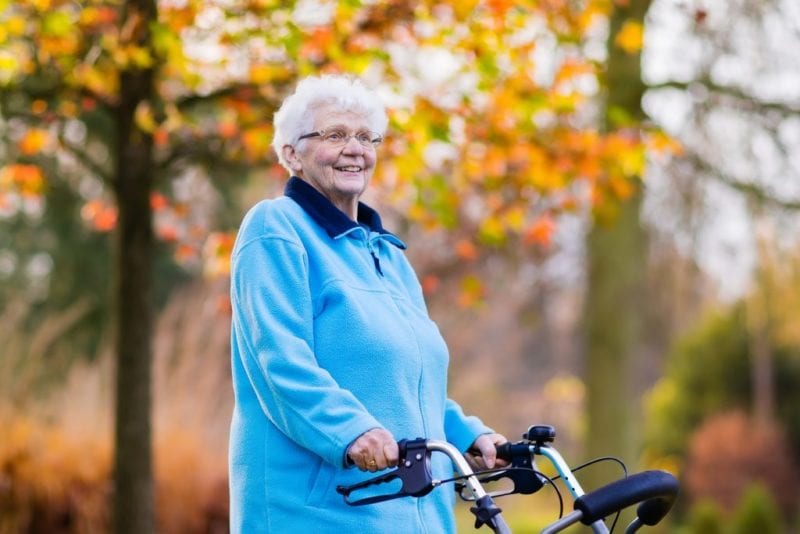At The Physio Co (TPC), we like to think big, and then act small, as often as we can. If we think a walking aid (like a walking stick or walking frame) can make a positive difference to the life of an older person that we work with, then we’ll let them know and do what we can to help them choose the right one.
TPC physio Jarrod recently worked with an elderly gentleman named Joe, who would stay in his nursing home room (and mostly in his bed) each day because he was adamant that a walking aid wasn’t for him. He was in his early 70s and detested the thought that he needed some help to get around.
He would say: “But that will make me look old”.
While we love the to encourage such spirit and determination, a person will only age more if they’re immobile – moving around, usually, means that you’ll be able to keep moving around. Laying in bed rarely helps anyone’s mobility!
Now, like many, Joe enjoyed his afternoon beer – in fact he loved it! One day, after a physio session Jarrod encouraged Joe to give a walking frame a go so he could get from his bed to his fridge to grab a beer. He did it. And he loved how it made him feel. He was back on his own two feet! Using a walking frame wasn’t so bad after all!
Three weeks later, with more practice, physio sessions, strengthening and balance exercises, Joe was up, about and again walking everywhere, with his new walking frame. Joe had mostly been in the nursing home due to his lack of mobility. By working with Jarrod, at his pace, he’d been able to accept the help he needed.
Three months later, he was mobile, safe and happy enough to return to his own home. Moving back home because he’d improved so much was an awesome result that doesn’t happen all that often for residents who live in residential aged care homes.
Timing is everything
Helping people retain independence and stay mobile while also minimising the risk of falls is super-important for us physios working with older people.
Deciding when is the right time for somebody to start using a mobility aid can be a double-edged sword: if that person is still able to get around safely, without a stick or frame, then using an aid can contribute to loss of strength and loss of independence.

But, if the person has some balance challenges, or possibly has already had one or two falls; then, the benefits of an aid might outweigh the risk. In that case, we will encourage the conversation and what can be the difficult decision to start using a stick, frame or other mobility aid.
The challenge is to change the mindset of how we look at a mobility aid, from “this will make me look old” to “this is an important tool that will help me keep my independence and live life to the fullest.”
Is Dr Google our friend?
You will find a heap of options on Google when it comes to choosing a mobility aid. But care needs to be taken. Not every option is right for every person.
At The Physio Co, we conduct an in-depth assessment with our clients at home, and – if necessary – make a recommendation as to what the best aid will be for each individual person.
We consider everything from the person’s height, fitness goals, the width of their door frames, and the number of steps the person needs to take to live their life.
There’s no point buying a frame if it can’t be used because there are too many steps to get up and down with it. In that case, it either won’t be used, or will make using it more dangerous than not using it.
After having an assessment with a physio, it’s a great idea if you can, to visit some shops that stock mobility equipment. You can try out a few different options and get a feel whether it’s going to work for you.
Bells and whistles
Of course, with a mobility aid – like most things in life – you get what you pay for, and it’s often worth investing that little extra to ensure the right option.
Similarly, it’s also worth remembering that everything is a trade-off. You won’t necessarily need the biggest and the best.
Ultimately, an aid suitable for the person and the environment is needed. Sustaining mobility, balance and, in turn, happiness and health, is the goal. A walking stick or frame is one of the tools that can help us make it happen!
Interested in knowing how we can help your elderly Mum or Dad move more and become more mobile?
Please call us for a no-obligation chat on 1300 797 793 or email [email protected] 🙂
Article by Madeline Low, TPC physiotherapist



 1300 797 793
1300 797 793